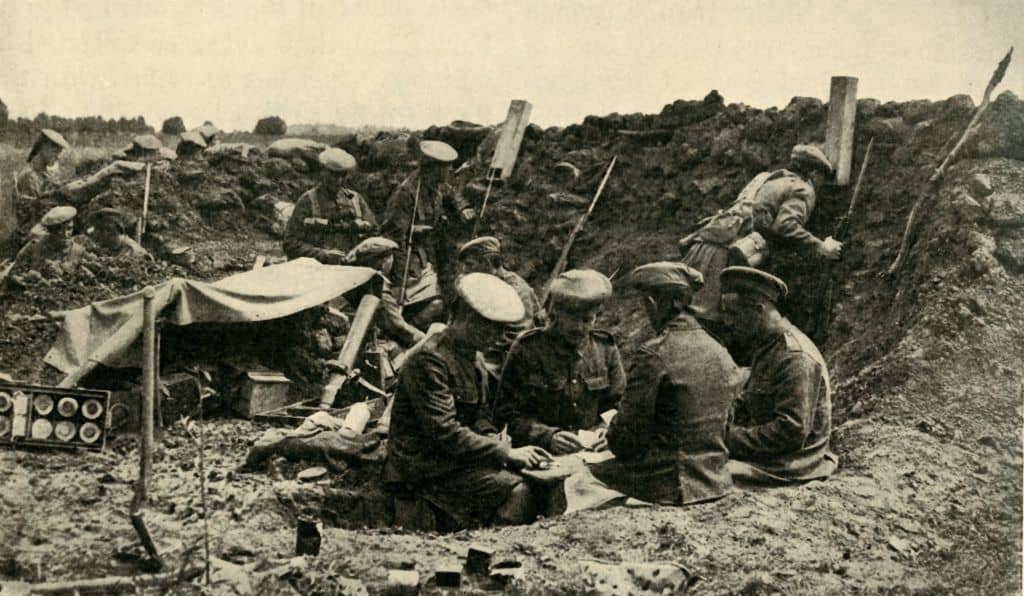I am not a patriotic person. I felt joy at London 2012 and like it when our sports teams and players win things; so much of Britain’s history is rich, eclectic, and impressive. But given the fact I barely have a drop of British blood in me, I don’t feel a huge amount of pride in our nation, just for the sake of it. The mindless patriotism of Americans puzzles me to the point of annoyance. Which is why I don’t bat an eyelid when people decide not to wear a poppy on Remembrance Day. Often, they have very personal, strongly held reasons for abstaining. Nobody should feel forced into it or be bullied about their choice not to wear one.
My own choice is to wear a poppy, and it isn’t out of any sense of social duty. I do so because of my great-grandfather, Sgt Bernard Brookes, who fought in World War I. He survived the conflict but was left permanently damaged by shell shock. He died in Surrey at the age of 69.
I never met the man, but feel a strong connection to him, thanks to his war diary, which was for a time put on display in the Imperial War Museum and later published as a book, A Signaller’s War. I also feel bonded to him because he loved rum, as I do.
At 22, Bernard, my nanna’s father, was six years my junior when he took his place in the trenches. He viewed war with a mixture of emotions. The book charts his shift from rage to sadness and, finally, a detached kind of bemusement at what was unfolding around him. Above all, though, he found real humour amid the horror of war. At times in the diary, he seems entirely ambivalent to anything other than raiding farms for wine, catching chickens for dinner, climbing bell towers and cavorting with local French women.
I love that he was at the Christmas truce, that he drank with the enemy; I love that he ejected a private from the kitchen’ for attempting to add a rat to the cooking pot. And I really admire his musings on fireside gentlemen’, who called for rum rations to be stopped.
“With regard to rum, perhaps a few words would not be out of place. The people who have voiced the opinion (from an armchair by the fireside at home, possibly) that the issue of rum to men at the front should be discontinued, surely do not know how necessary it is, and how often it is the means of saving life.
When one has not a comfortable fire by which to sit, brandy balls will not suffice to keep out the cold, and rum in its way takes the place of a fire in that it so thoroughly warms the body. Many a time when in the trenches in the winter standing knee-deep in mud and water, the only thing which keeps a man alive is rum.
I have never come across an infantryman who has been in the trenches in the winter who is against the issue of rum, but if there is such a one he need not have it.
It is quite true that before an attack a bigger issue of rum is allowed each man to get his ‘back up’, but if the men don’t object, why worry? Let these fireside gentlemen try a drop and perhaps they may begin to like it.”
It is in these fleeting reflections that, for me, the heroism of the individuals who fought in the Great War is brought into sharp focus. The sheer number of people lost or permanently injured in that conflict is staggering and, perhaps to some extent, desensitising. Reading about what my great-grandfather went through at such a young age makes the sacrifice made by him, and so many like him, powerfully and movingly clear. So, I wear a poppy on November 11 for Bernard and his comrades. I’ll raise a glass of rum to them, too.






Comments